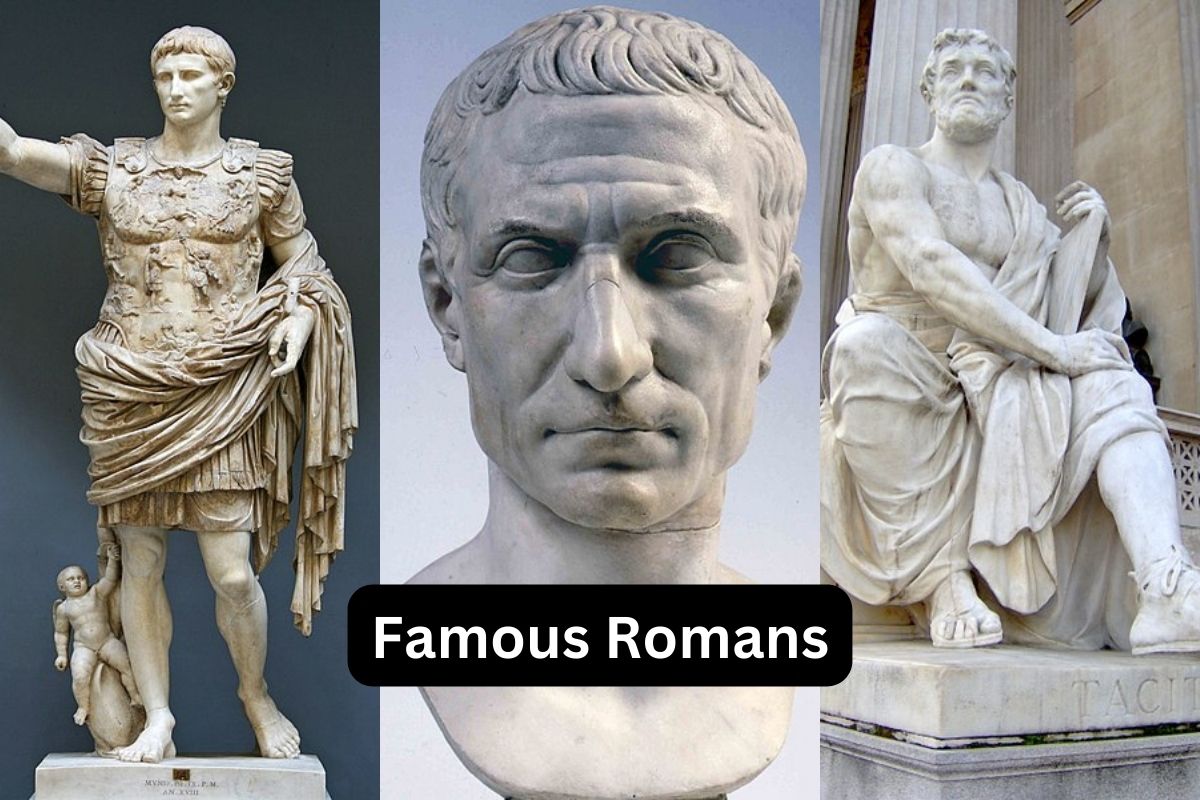The Romans are often considered one of the most influential civilizations in human history. Their contributions to law, language, art, architecture, and engineering continue to impact our world today.
The Roman Republic and Empire produced many famous individuals, ranging from powerful emperors to skilled generals, philosophers, writers, and artists.
These individuals have left a lasting legacy, and their names are still remembered centuries later.
In this context, we will explore some of the most famous Romans, including Julius Caesar, Augustus, Cicero, and Marcus Aurelius, among others.
Famous Romans
1. Augustus
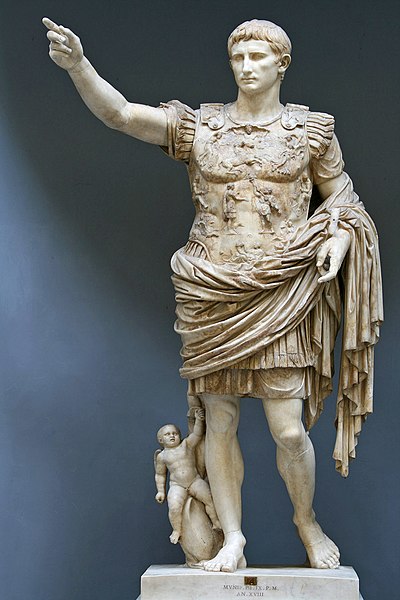
Augustus was the first emperor of Rome, who ruled from 27 BC until his death in AD 14. He was born Gaius Octavius Thurinus in 63 BC, and was adopted by his great-uncle Julius Caesar in his will.
Also Read: Famous Roman Emperors
After Caesar’s assassination in 44 BC, Octavius became one of the leaders of the Roman Republic and joined forces with Mark Antony and Lepidus to form the Second Triumvirate, which ruled Rome from 43 to 33 BC.
Following a period of civil war and political unrest, Octavius emerged as the sole ruler of Rome in 27 BC, and was given the name Augustus, which means “revered” or “venerable”. He is famous for his role in bringing about a period of relative peace and stability known as the Pax Romana, which lasted for over two centuries.
Also Read: Accomplishments of Augustus Caesar
During his reign, Augustus implemented a series of reforms to strengthen the Roman state, including the creation of a professional standing army, the establishment of a network of roads and ports, and the promotion of Roman art and literature.
Augustus was also known for his family policies, including encouraging marriage and childbearing, and promoting the traditional Roman values of piety, frugality, and loyalty. He was a patron of the arts and literature, and his reign is considered a golden age of Roman culture.
Augustus died in AD 14, and was succeeded by his adopted son Tiberius. He is remembered as one of the greatest emperors in Roman history, and his legacy continues to be felt today.
2. Julius Caesar

Julius Caesar was a Roman general, statesman, and writer who played a crucial role in the events that led to the demise of the Roman Republic and the rise of the Roman Empire.
He was born in 100 BC into a patrician family, and rose to prominence as a military commander during the Gallic Wars from 58 to 50 BC. He was known for his military prowess, political acumen, and literary talent, and was a popular figure among the Roman people.
Also Read: Julius Caesar Facts
In 49 BC, Caesar defied the Senate’s orders to disband his army and return to Rome, and crossed the Rubicon River with his troops, marking the beginning of a civil war between Caesar and his rivals. He emerged victorious and was appointed dictator for life in 44 BC.
However, his reforms and autocratic rule angered some members of the Roman Senate, and he was assassinated in the Senate chamber in 44 BC by a group of senators led by Brutus and Cassius.
Caesar’s legacy is complex and controversial. He is credited with bringing about social and political reforms, such as the Julian calendar, which is still used today, and the establishment of a system of public works and building projects.
Also Read: Timeline of the Roman Empire
He was also known for his military conquests and expansion of the Roman Empire, which some historians argue led to the downfall of the Republic. He was a gifted writer and orator, and his works, including his Commentaries on the Gallic War and his speeches, continue to be studied today.
Despite his controversial legacy, Julius Caesar is remembered as one of the most famous and influential figures in Western history, and his name has become synonymous with political power and ambition.
3. Tacitus
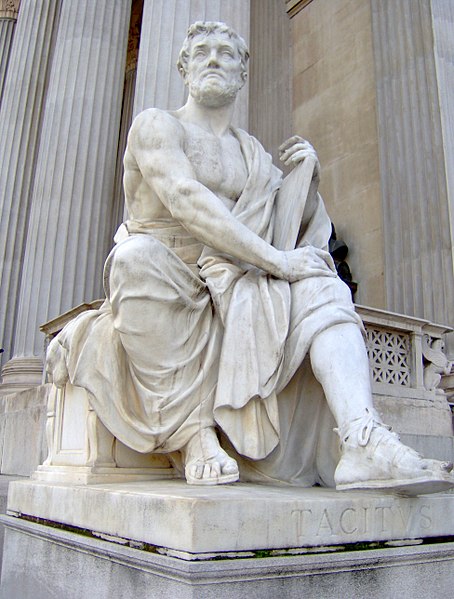
Tacitus was a Roman historian and senator who lived in the first and second centuries AD. He is considered one of the greatest historians of ancient Rome, and his works provide valuable insights into the politics and society of the Roman Empire.
Tacitus was born in 56 AD, and he began his political career as a senator under the emperor Vespasian. He later served as governor of the Roman province of Asia, but he fell out of favor with the emperor Domitian and was forced to retire from public life.
Tacitus is famous for his historical works, which include “The Annals” and “The Histories”. “The Annals” covers the period from the death of Augustus in AD 14 to the death of Nero in AD 68, and provides a detailed account of the politics and events of the Roman Empire during this period.
“The Histories” covers the period from the death of Nero in AD 68 to the death of Domitian in AD 96, and provides a more general overview of the politics and events of this time.
Tacitus is known for his vivid and engaging writing style, and for his ability to provide critical analysis of the political and social structures of the Roman Empire. His works are considered valuable sources of information about Roman history, and continue to be studied and debated by historians today.
4. Tiberius
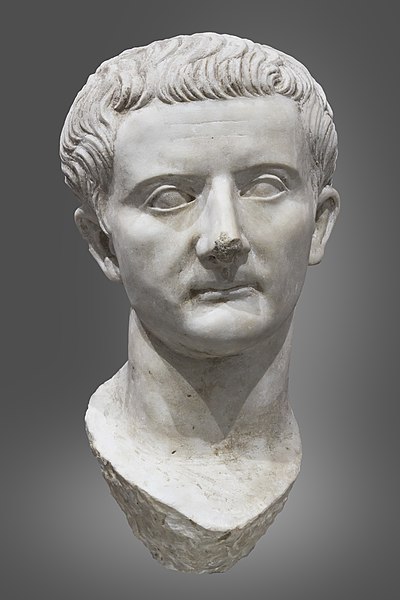
Tiberius was a Roman emperor who ruled from AD 14 to AD 37. He was born in 42 BC and was the son of Tiberius Claudius Nero and Livia Drusilla, who later married the emperor Augustus.
Tiberius began his military career as a teenager, and served in various campaigns in Spain and Germany. He was adopted by Augustus in AD 4, and became his designated successor. He succeeded Augustus as emperor in AD 14, and moved the capital of the Roman Empire from Rome to the island of Capri.
Tiberius is known for his reclusive and often cruel nature. He withdrew from public life and delegated much of his power to his advisors, including the infamous Praetorian Prefect Sejanus. Tiberius was also known for his harsh treatment of political enemies, and many people were executed during his reign for treason.
Despite his reputation as a tyrant, Tiberius was also known for his administrative reforms and for his interest in literature and culture. He was a patron of the arts, and was known to have written poetry and letters.
Tiberius died in AD 37, and was succeeded by his grand-nephew Caligula. He is remembered as a controversial figure in Roman history, and his reign marked a period of transition from the golden age of Augustus to the tumultuous years that followed.
5. Gaius Marius
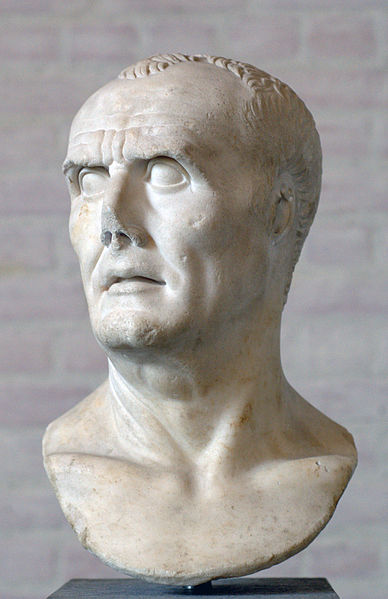
Gaius Marius was a Roman general and statesman who lived in the second century BC. He was born in 157 BC in Arpinum, a small town in central Italy, and rose to prominence during the Jugurthine War in North Africa in the 110s BC.
Marius was known for his military prowess and innovative tactics. He introduced significant changes to the Roman army, such as increasing the number of soldiers, improving training, and allowing non-landowners to join the army.
Also Read: Roman Army Facts
These reforms helped to create a more professional and effective fighting force, and contributed to Rome’s military success during his lifetime.
Marius was elected consul seven times, and his political career was marked by controversy and conflict. He was a popular figure among the Roman people, but he was opposed by many members of the Senate, including his long-time rival Lucius Cornelius Sulla.
Marius and Sulla engaged in a bitter struggle for power, which led to a series of civil wars and political upheavals.
Marius is also known for his role in the social and economic transformation of Rome. He supported land reforms and the distribution of land to the poor, which helped to address some of the social and economic inequality that existed in Roman society.
Despite his accomplishments, Marius’ legacy is complicated. His reforms and military success helped to strengthen the Roman state, but his political ambitions and struggles for power contributed to the decline of the Roman Republic. He died in 86 BC, and his death marked the end of an era in Roman history.
6. Cicero

Cicero was a Roman politician, lawyer, and orator who lived in the first century BC. He was born in 106 BC in Arpinum, a small town in central Italy, and was educated in Rome and Athens.
Cicero was known for his exceptional oratory skills and his ability to persuade and influence others. He was a champion of Roman republican values and principles, and he was a vocal opponent of Julius Caesar and the rise of autocratic rule in Rome.
Cicero was also a prominent lawyer, and his legal writings and speeches are considered some of the most important in Roman history. He defended clients in some of the most famous trials of his time, including the trial of the corrupt governor of Sicily, Verres.
In addition to his political and legal career, Cicero was also a prolific writer and philosopher. He wrote on a variety of topics, including politics, ethics, and rhetoric, and his works had a significant influence on the development of Western philosophy and literature.
Cicero’s career and life were marked by political turmoil and violence. He was exiled from Rome twice, and he was eventually executed in 43 BC by Mark Antony and his supporters during the power struggles that followed the assassination of Julius Caesar.
Despite his tragic end, Cicero is remembered as one of the most important figures in Roman history. His writings and speeches continue to be studied and admired for their clarity, intelligence, and insight into the politics and society of ancient Rome.
7. Nero
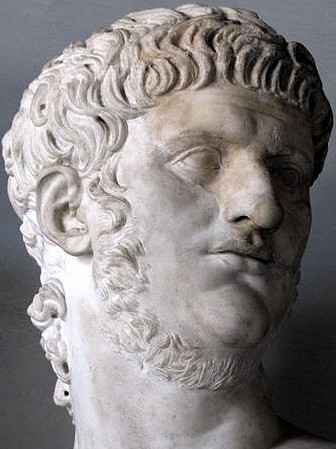
Nero was a Roman emperor who ruled from AD 54 to AD 68. He was born in AD 37, and was the son of the emperor Claudius and his third wife, Agrippina the Younger.
Nero is known for his tyrannical and erratic behavior. He was infamous for his cruelty, extravagance, and corruption, and he was said to have murdered his own mother and several other members of his family. He was also known for his love of the arts, and he was a talented musician and performer.
During Nero’s reign, Rome was hit by a devastating fire in AD 64, which destroyed much of the city. Nero was accused of starting the fire in order to rebuild Rome according to his own designs. He responded by blaming the fire on the Christians, and launching a brutal persecution of them.
Nero’s reign was marked by political instability and violence, and he faced several uprisings and rebellions during his time as emperor. In AD 68, he was declared a public enemy by the Roman Senate, and he was forced to flee Rome. He committed suicide later that year.
Despite his notoriety, Nero’s reign also saw some significant accomplishments. He sponsored public works projects, including the construction of a new palace, and he introduced reforms to the Roman legal system.
However, his legacy is largely negative, and he is remembered as one of the most tyrannical and corrupt emperors in Roman history.
8. Claudius
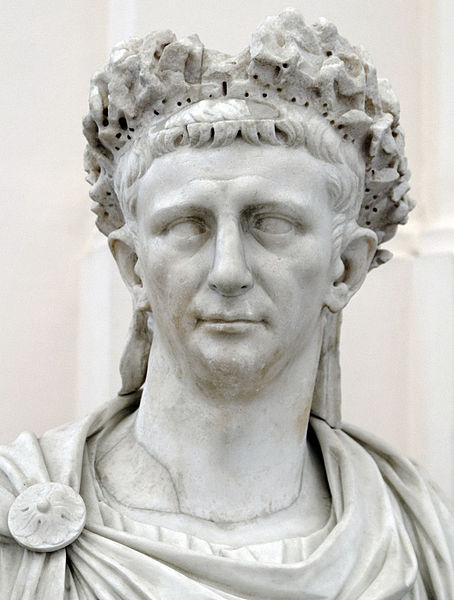
Claudius was a Roman emperor who ruled from AD 41 to AD 54. He was born in 10 BC and was the son of Drusus, a prominent Roman general, and the nephew of the emperor Tiberius.
Claudius was born with a physical disability, and he was often ridiculed and underestimated by his family and contemporaries. He was initially kept out of public life, but he later emerged as a prominent figure in the Roman court.
In AD 41, following the assassination of his nephew, Caligula, Claudius was declared emperor by the Praetorian Guard. He was initially seen as a weak and ineffectual ruler, but he proved to be a capable administrator and military leader.
During his reign, Claudius undertook a number of significant building projects and public works, including the construction of aqueducts and public Roman buildings. He also expanded the Roman Empire through military conquests in Britain and other parts of Europe.
Claudius was known for his interest in law and justice, and he introduced a number of reforms to the Roman legal system. He was also a prolific writer and historian, and he wrote several books on Roman history and the Etruscan language.
Despite his accomplishments, Claudius was often the subject of criticism and ridicule during his lifetime, and his reign was marked by political intrigue and violence. He was assassinated in AD 54, and was succeeded by his adopted son, Nero.
Claudius’ legacy is complex and somewhat controversial. He is remembered as a capable ruler and administrator, but also as a figure who was underestimated and ridiculed by his contemporaries.
9. Hadrian
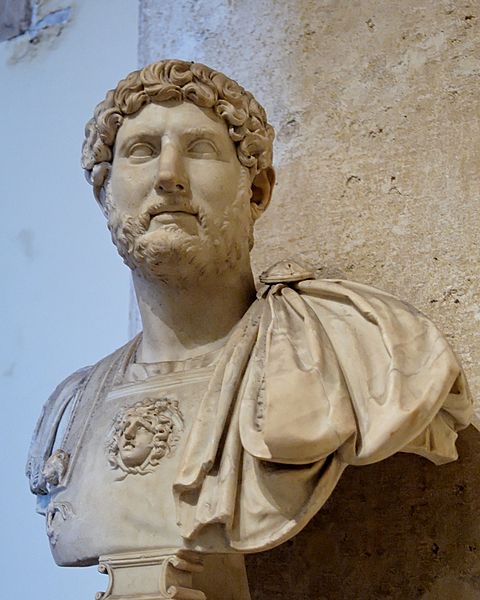
Hadrian was a Roman emperor who ruled from AD 117 to AD 138. He was born in AD 76, and was the third of the “Five Good Emperors” who governed Rome during a period of relative peace and prosperity in the second century AD.
Hadrian is known for his military conquests, his administrative reforms, and his interest in art, culture, and architecture. He expanded the Roman Empire through conquests in Britain, Dacia, and the Near East, and he reorganized the Roman military to make it more efficient and effective.
Hadrian was also known for his administrative and legal reforms, including the codification of Roman law, the establishment of a professional civil service, and the improvement of public works and infrastructure. He was a patron of the arts, and his reign saw a flourishing of Roman literature, architecture, and sculpture.
One of Hadrian’s most famous achievements was the construction of Hadrian’s Wall in northern England, which marked the northern frontier of the Roman Empire and helped to protect it from invasion by barbarian tribes.
He also commissioned the construction of several other notable buildings, including the Pantheon in Rome and the Temple of Venus and Roma.
Despite his many accomplishments, Hadrian’s reign was not without controversy. He was known for his authoritarian and sometimes cruel nature, and his policies toward the Jewish population in the Roman Empire were particularly harsh.
Hadrian died in AD 138, and was succeeded by his adopted son, Antoninus Pius. He is remembered as one of the greatest emperors in Roman history, and his legacy continues to be felt today through his contributions to law, architecture, and culture.
10. Trajan
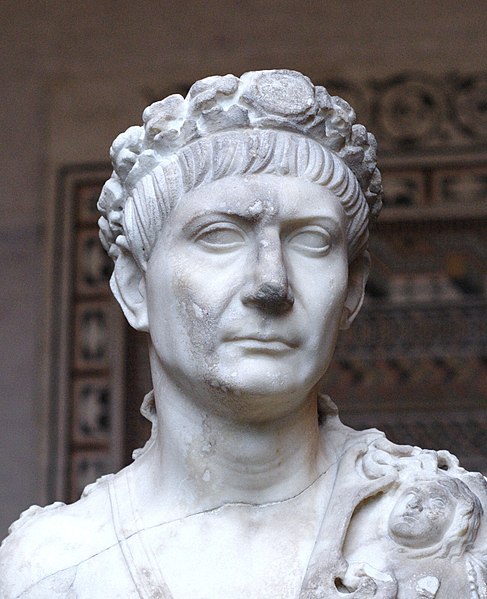
Trajan was a Roman emperor who ruled from AD 98 to AD 117. He was born in AD 53 in the Roman province of Hispania, and was the first non-Italian to become emperor.
Trajan is known for his military conquests and his role in expanding the Roman Empire to its greatest extent. He launched successful campaigns against the Dacians in modern-day Romania, and his conquest of the Kingdom of Dacia in AD 106 brought vast riches and resources to the Roman Empire.
Also Read: Trajan Facts
Trajan was also a patron of the arts and culture, and his reign saw a flourishing of Roman literature, architecture, and sculpture. He commissioned the construction of several notable buildings, including Trajan’s Forum and Trajan’s Column in Rome.
Trajan was known for his administrative and legal reforms, including the establishment of a system of public works and welfare programs, and the creation of a professional standing army.
He was also a champion of civic infrastructure, and his reign saw the construction of many new roads, bridges, and aqueducts throughout the Roman Empire.
Trajan died in AD 117, and was succeeded by his adopted son, Hadrian. He is remembered as one of the greatest emperors in Roman history, and his legacy continues to be felt today through his contributions to military strategy, public works, and culture.
11. Constantine
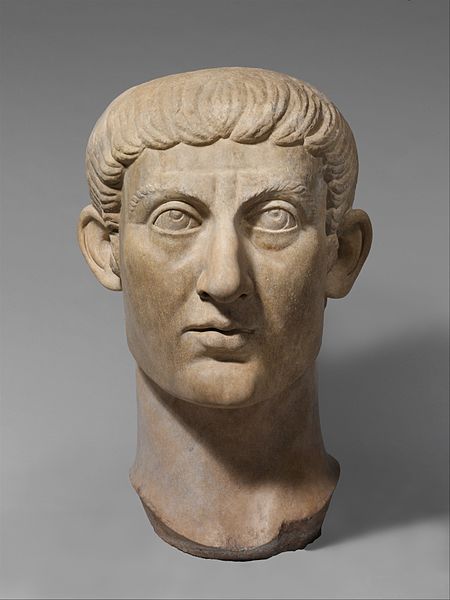
Constantine, also known as Constantine the Great, was a Roman emperor who ruled from AD 306 to AD 337. He was born in AD 272 in Naissus, a city in modern-day Serbia.
Constantine is known for his religious and political reforms, and for his role in the rise of Christianity as the dominant religion in the Roman Empire.
He was the first Roman emperor to convert to Christianity, and he issued the Edict of Milan in AD 313, which granted religious tolerance and freedom of worship to Christians and other religious groups.
Constantine is also known for his military conquests and his role in reuniting the Roman Empire after a period of division and civil war. He defeated his rival Maxentius at the Battle of the Milvian Bridge in AD 312, and went on to conquer much of the eastern part of the Roman Empire.
Also Read: Constantine Facts
During his reign, Constantine commissioned the construction of several notable buildings and public works, including the new capital city of Constantinople, which he founded in AD 324 on the site of the ancient city of Byzantium.
Constantine died in AD 337, and was succeeded by his three sons, who divided the Roman Empire among themselves. He is remembered as one of the most significant figures in Roman history, and his legacy continues to be felt today through his contributions to religion, politics, and culture.
12. Marcus Aurelius
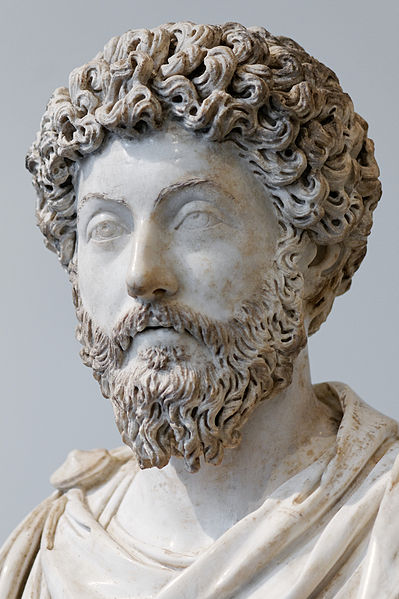
Marcus Aurelius was a Roman emperor who ruled from AD 161 to AD 180. He was born in AD 121, and was a philosopher and scholar as well as an emperor.
Marcus Aurelius is known for his Stoic philosophy, which emphasizes the importance of virtue, reason, and self-control. He wrote a series of meditations known as “The Meditations of Marcus Aurelius,” which are considered some of the most important works of Stoic philosophy.
During his reign, Marcus Aurelius faced several military and political challenges, including wars against the Parthian Empire and the Germanic tribes along the northern frontier of the Roman Empire. He was known for his military prowess and his ability to inspire his troops, and he was respected by both his soldiers and his political allies.
Marcus Aurelius was also known for his administrative and legal reforms, and for his efforts to improve the lives of ordinary Romans. He established welfare programs and supported public works projects, and he was a patron of the arts and literature.
Despite his many accomplishments, Marcus Aurelius’ reign was not without controversy. He faced several uprisings and rebellions, and his decision to appoint his son Commodus as his successor has been criticized by historians.
Marcus Aurelius died in AD 180, and was succeeded by his son Commodus. He is remembered as one of the greatest Roman emperors, and his Stoic philosophy continues to be studied and admired today.
13. Commodus
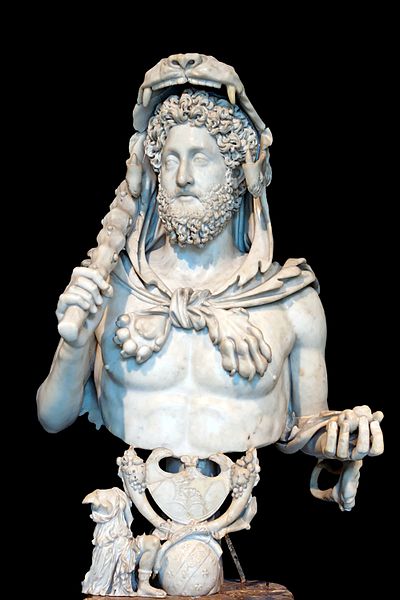
Commodus was a Roman emperor who ruled from AD 180 to AD 192. He was born in AD 161, and was the son of the emperor Marcus Aurelius.
Commodus is known for his extravagant and often erratic behavior. He was infamous for his love of gladiatorial games and his tendency to indulge in excess and luxury. He was also known for his authoritarian and often cruel nature, and he was responsible for the deaths of many political enemies and perceived threats to his power.
Commodus’ reign was marked by political instability and violence. He faced several uprisings and rebellions, and his policies and actions were often unpopular among the Roman people and the political elite.
Commodus was assassinated in AD 192, and his death marked the end of the Antonine dynasty and the beginning of a period of political turmoil and instability known as the Crisis of the Third Century.
Despite his notoriety, Commodus is remembered for his contributions to the Roman Empire, including the construction of public buildings and infrastructure, and his military campaigns against the Germanic tribes along the northern frontier of the Empire. However, his legacy is largely negative, and he is remembered as one of the most tyrannical and corrupt emperors in Roman history.
